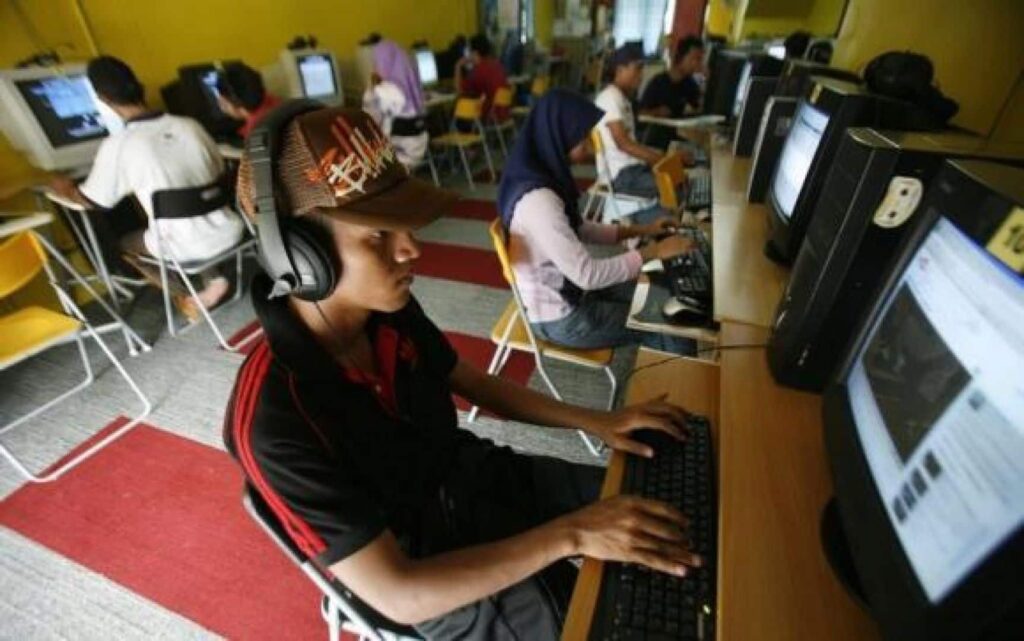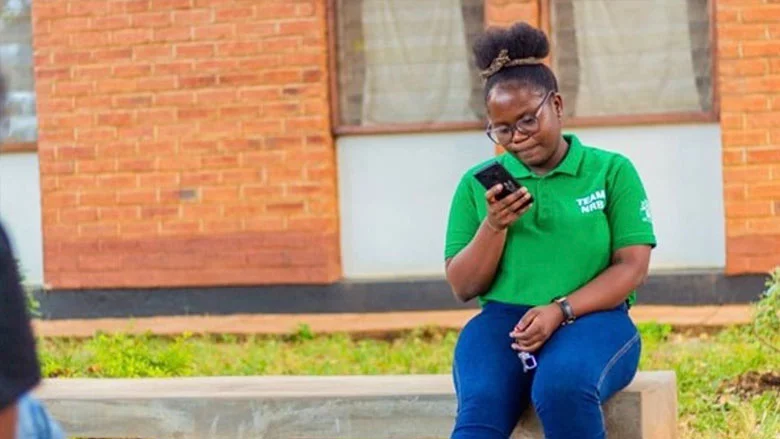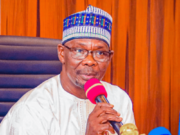In an era where internet access is no longer a luxury but a necessity, How Public Wi‑Fi Is Boosting Learning in Nigeria has become one of the most important stories in education today. From tertiary campuses to community learning hubs, the growth of public access points is transforming how Nigerian students learn, connect and thrive.
Table of Contents

Opening Doors: From Airports to University Campuses
Under the Nigerian National Broadband Plan 2020–2025, the federal government has committed to bringing broadband connectivity to at least 90 % of Nigerians, offering download speeds of at least 25 Mbps in urban areas and 10 Mbps in rural regions, at prices capped at around ₦390 per gigabyte, according to Meat Tech Watch. As part of this, authorities plan to deploy free internet across 75 public venues—20 airports, university campuses, and local markets across the 36 states. This is a major step in making digital access an everyday reality.
Meanwhile, Lagos State led the way with its “Smart City” initiative—installing free Wi‑Fi in parks like Ndubuisi Kanu Park in Ikeja and Muri‑Okunola Park on Victoria Island. While early enthusiasm waned as some spots fell into disrepair or inconsistent coverage, the model has shown promise for public usage of connectivity.
In Lagos itself, the Speaker of the House, Femi Gbajabiamila, sponsored the installation of free Wi‑Fi at six public tertiary institutions: UNILAG, LASU, YABATECH, LASPOTECH, AOCOED Ijanikin, and MOCOPED Epe. The roll‑out expanded connectivity across faculties, libraries, student unions and campuses, enabling students to tap into online resources across multiple disciplines.
Bridging the Digital Divide in Schools and Rural Communities
Nigeria suffers a stark digital divide. Only about 36 % of the population uses the internet, and just 47 % of teachers possess basic ICT skills. The youth are particularly affected—over three‑quarters lack digital literacy skills, and nearly a quarter of primary‑age children are out of school, according to unicef.org.
To address this, UNICEF and the Federal Ministry of Education launched GenU 9JA and the Nigeria Learning Passport platform. Through partnerships involving Airtel, ATC Nigeria, IHS, and others, they have connected over 1,000 public schools to the internet, installed routers and data plans, set up community access points, and trained tens of thousands of teachers. As of February 2025, Nigeria Learning Passport registrations surged past 750,000 users.
In Osun State, 100 public schools have received routers and free unlimited data plans. Over two hundred teachers were trained in digital pedagogy, leveraging the Nigeria Learning Passport to deliver blended learning effectively. Similarly, the Internet Society Nigeria (ISOC Nigeria) is deploying community Wi‑Fi in tertiary institutions across Kogi State, starting with rural campuses where digital infrastructure has lagged.

Youth Benefits: Beyond the Classroom
A report by ICTworks highlights eight ways in which free public Wi‑Fi improves opportunities for young Nigerians, especially those under 25. From expanding access to research and educational platforms to promoting digital literacy, social network growth, civic engagement, and entrepreneurial activity, public internet service is unlocking multiple developmental avenues.
Access to online educational content—e‑learning courses, video lectures, open books—helps students complete assignments, study independently and explore professions not locally available. Improved digital and informational skills make them more competitive in examinations and the job market alike. The platform even provides flexibility with downloads and asynchronous learning for areas affected by connectivity instability.
Personal stories further underline this impact. One Reddit user spoke movingly of self‑education through free school Wi‑Fi: “All I had was the internet and hope; internet here was the school wifi, either free or paid for … I did it with my bare hands”. This resonates deeply with many Nigerians striving to break out of socioeconomic hardship by leveraging free access.
Challenges That Remain
Despite the progress, infrastructure limitations persist. Many public Wi‑Fi hotspots suffer poor reliability—signal drops, inconsistent uptime, and low bandwidth. Parks in Lagos that once offered connectivity struggle today. Users often find the network unavailable or too slow for video calls or streaming
Device access is also a barrier: not all students have laptops, tablets or smartphones. Even when public connectivity is available, students without devices remain excluded. Moreover, rural areas still lag behind urban regions in rollout and maintenance.
Finally, sustainability is a concern. Many free Wi‑Fi projects are launched without long‑term models or evaluation frameworks. Some initiatives fade after initial launch, lacking regular maintenance or funding continuity.
Regulatory and Institutional Support
To support quality and sustainability, NITDA has introduced a Public Internet Access Regulation Framework, which defines standards for accessibility, security and user protection at public internet access points. Licensing requirements and oversight will help ensure consistent service across platforms.
Meanwhile, the House of Representatives passed a draft bill to provide a legal foundation for free internet in public places—schools, hospitals, parks, libraries, airports, transport terminals and government offices. The bill mandates that access must be free and unimpeded, with only minimal technical restrictions justified by security needs. Regulatory agencies like NCC and NITDA would oversee prioritisation and compliance.
The Universal Service Provision Fund (USPF), managed by the NCC, continues to play its role in funding rural and underserved ICT projects since 2006. It channels subsidies and support to areas where market forces alone cannot deliver reliable connectivity.
Real Impact on Learning Outcomes
So far, independent studies and reports show mixed, promising results. Students using school‑based public Wi‑Fi have better access to study materials, engage more with interactive platforms, and report enhanced digital skills. Teacher training on digital literacy has enabled more effective use of platforms like Nigeria Learning Passport, boosting interest and comprehension in subjects like reading and numeracy.
Still, quantifying the precise link between public Wi‑Fi and exam scores remains complex. Other determinants—device access, electricity, teacher quality—continue to influence educational outcomes. Thus, infrastructure expansion must be accompanied by comprehensive support—teacher training, device provisioning, and evaluation.
Looking Ahead: Scaling What Works
Nigeria’s success stories so far show that with strategic collaboration, free internet can reach deeper into the system:
- Expand rollout beyond major cities to rural schools, markets and transit hubs.
- Commit to device access—through school computer labs, device lending schemes or community centres.
- Embed teacher training and digital skills curricula so educators can use connectivity effectively.
- Monitor and evaluate projects to ensure usage, reliability and learning impact.
- Secure sustainable funding—through USPF, public‑private partnerships, and local budgets to maintain hotspots over time.
If properly scaled, Public Wi‑Fi access across Nigeria can help bridge inequality, level educational opportunities and create digitally empowered youth ready for a 21st‑century economy.

Conclusion: Digital Learning’s Silent Revolution
In sum, How Public Wi‑Fi Is Boosting Learning in Nigeria is not just a slogan—it’s a growing reality. From airports and university campuses to public schools and community hubs, the steady deployment of free Wi‑Fi is expanding access to learning opportunities, strengthening teacher capacity, and enabling students to chart new ambitions. Six key mentions of Public Wi‑Fi show how this specific form of connectivity is at the heart of a broader national digital transformation.
As infrastructure, device access and policy support continue to improve, millions of Nigerian students stand to gain from this silent revolution. Public Wi‑Fi initiatives that are sustained, evaluated and scaled will help unlock more of Nigeria’s youthful potential and ultimately, contribute to the nation’s economic and social progress.
Join Our Social Media Channels:
WhatsApp: NaijaEyes
Facebook: NaijaEyes
Twitter: NaijaEyes
Instagram: NaijaEyes
TikTok: NaijaEyes








































